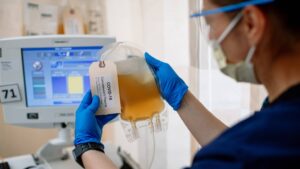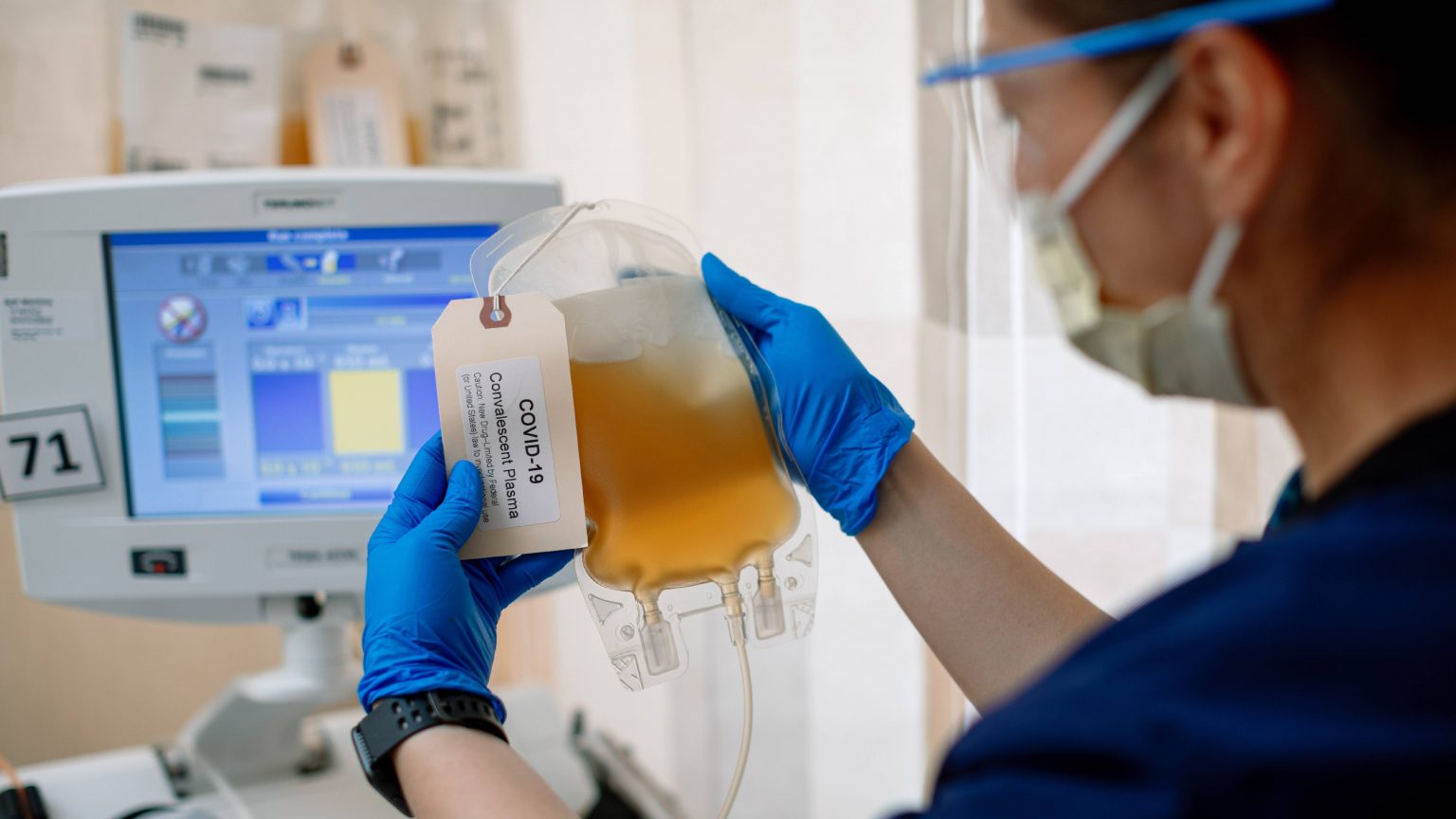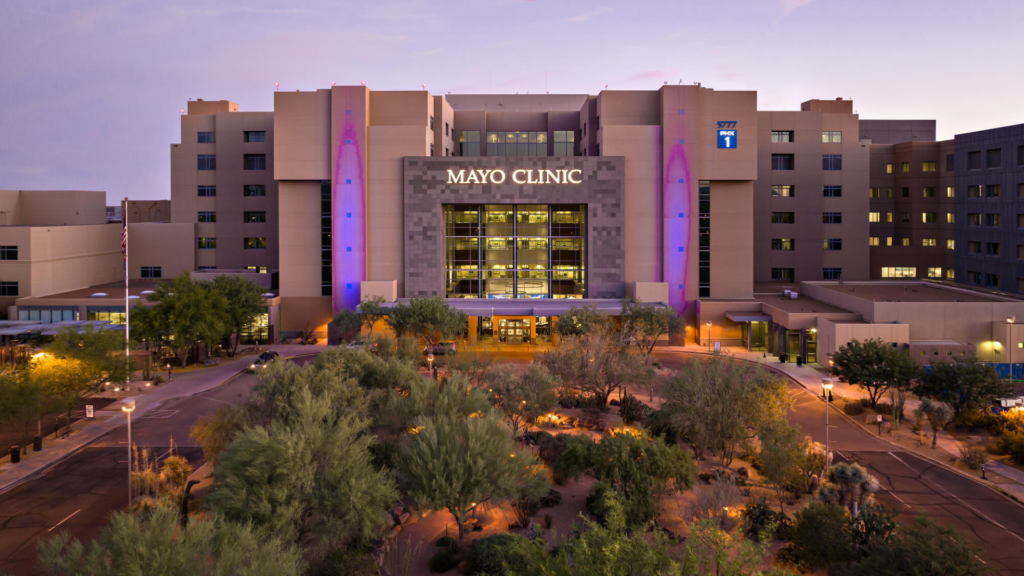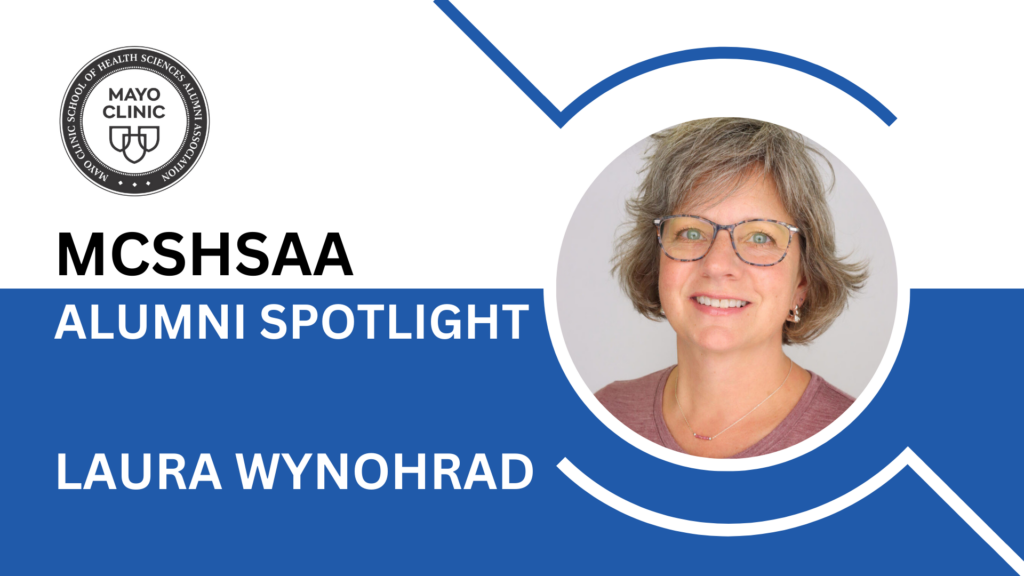 The Library of Congress has selected Mayo Clinic’s uscovidplasma.org website for the nation’s historic Coronavirus Web Archive. Mayo Clinic developed this site as leader of the nation’s Expanded Access Program for convalescent plasma to treat COVID-19.
The Library of Congress has selected Mayo Clinic’s uscovidplasma.org website for the nation’s historic Coronavirus Web Archive. Mayo Clinic developed this site as leader of the nation’s Expanded Access Program for convalescent plasma to treat COVID-19.
Beginning this month, the library will periodically create an archival copy of uscovidplasma.org — essentially a snapshot in time — that researchers can navigate much like the original site. Access will be available on-site at the Library of Congress in Washington, D.C., as well as on the library’s public access website no sooner than fall 2021.
Selection for the archive demonstrates the significant role of the Expanded Access Program in the global response to the pandemic, as well as Mayo Clinic’s leadership and capabilities.
“With our website in the national web archive, people will be able to look back at this program as a guide to responding to events in the future,” says Michael Joyner, M.D., Division of Anesthesiology and Perioperative Medicine at Mayo Clinic in Rochester and the Frank R. and Shari Caywood Professor, the program’s principal investigator. “Our entire team deserves tremendous credit for the work they’ve done to successfully implement this program.”
The Expanded Access Program for convalescent plasma is one of 200 U.S. websites recently added to the library’s multidisciplinary Coronavirus Web Archive collection. This new collection contains select web-based evidence to document the effect of the pandemic on every aspect of American life and the many communities within the U.S. Websites are chosen based on criteria such as the usefulness of the information provided for Congress and researchers, and scholarly content.
The site went from ideation to launch in days, according to Lisa Muenkel, Health Education and Content Services, who manages the website.
Matthew Dacy, director of Mayo Clinic’s Heritage Hall, says, “Just as we are collecting our own internal resources for the record, now we have the advocacy of the Library of Congress saying what Mayo Clinic is doing is so meritorious it belongs in the national archive — the attic of our country — where it can be looked at broadly as a resource for scholars for many years to come.”
A ‘virtual window’ to meet an urgent need
The Food and Drug Administration (FDA) established the Expanded Access Program in April to meet an urgent need for patients hospitalized with COVID-19 to have greater access to convalescent plasma, a treatment approach long used for various conditions.
When the FDA initially tapped Mayo Clinic to lead the program, a team rapidly mobilized to create uscovidplasma.org as a portal for physicians across the country to enroll patients.
“Facilitating a program like this couldn’t happen without the website,” Muenkel says. “It served as a conduit for physicians to learn about the program, enroll in it, enroll patients for transfusion, access forms and understand how to order plasma. It’s like a window to the program.”
The site includes more than 20 pages of content, including reference guides, video tutorials, access to a help line, and research publications from the study. The site also served to encourage plasma donations from people who had recovered from COVID-19. The site has had over 400,000 unique visitors and 1.2 million page views since its April 3 launch.
The Expanded Access Program team was initially tasked with enrolling 5,000 patients. Over time, the program has served 2,730 hospital and acute care facilities spanning all 50 states, with more than 13,000 physicians enrolling 105,742 patients to receive convalescent plasma for COVID-19. “We crushed any sort of metric related to size, time and diversity,” Dr. Joyner says.
The research team has published findings that convalescent plasma is safe for diverse patients hospitalized with COVID-19.
‘We didn’t know it was supposed to be impossible. We just did it.’
More than 125 staff members from across Mayo Clinic have been involved in the Expanded Access Program. “True to the Mayo team spirit, we sent out a call for action, and people responded,” says Kelly Paulson, Ph.D., administrator of the Expanded Access Program.
In April, staff furloughs meant that colleagues with a range of expertise were available for redeployment to the program. Mayo physicians have played a key role, serving as navigators for other physicians from across the country, and providing scientific oversight for compliance.
The effort also has relied heavily on the contributions of Mayo postdoctoral staff, clinical research coordinators, laboratory medicine staff, project managers and communicators.
Dr. Paulson says the Mayo team has accomplished in seven months what likely would take three to five years for a typical research study of its size.
At the heart of this work has been the continual need to switch gears on the fly under the stress of a pandemic. The spirit of this effort is perhaps best captured on team T-shirts that bear a favorite slogan of Dr. Joyner’s: “We didn’t know it was supposed to be impossible. We just did it.”
Teamwork underpins Mayo achievement
The Expanded Access Program falls in line with other achievements with global implications in Mayo Clinic’s history. Dr. Joyner cites the team efforts of John Kirklin, M.D., in founding heart bypass surgery, and Earl Wood, M.D., Ph.D., in developing the G-suit. “When you start looking at these sorts of things and the large groups involved, you see many parallels. They involved multidisciplinary teams, and innovative systems and procedures.”
Strong leadership, including support from Mayo Clinic senior leaders, was also instrumental to the team’s ability to accelerate decision-making and marshal resources quickly.
In addition to Drs. Joyner and Paulson, the program was led by R. Scott Wright, M.D., director of the Mayo Clinic Institutional Review Board; DeLisa Fairweather, Ph.D., Division of Cardiovascular Disease, a co-investigator involved in planning, data analysis and manuscript preparation; and Rickey Carter, Ph.D., Department of Health Sciences Research, leader of the program’s biostatistics group.





